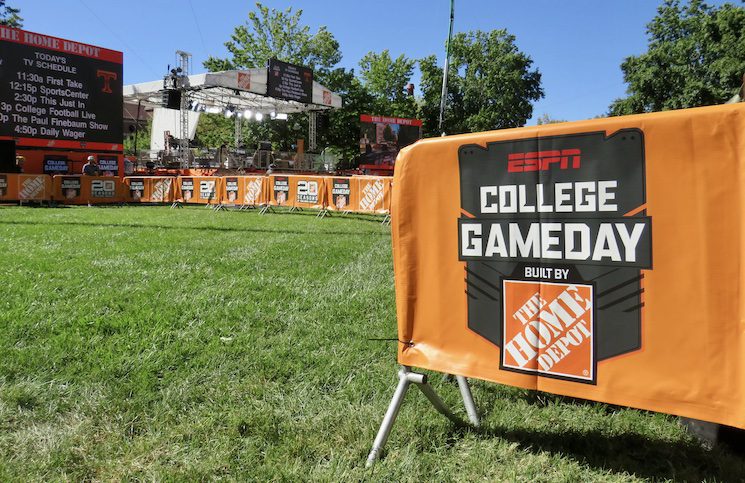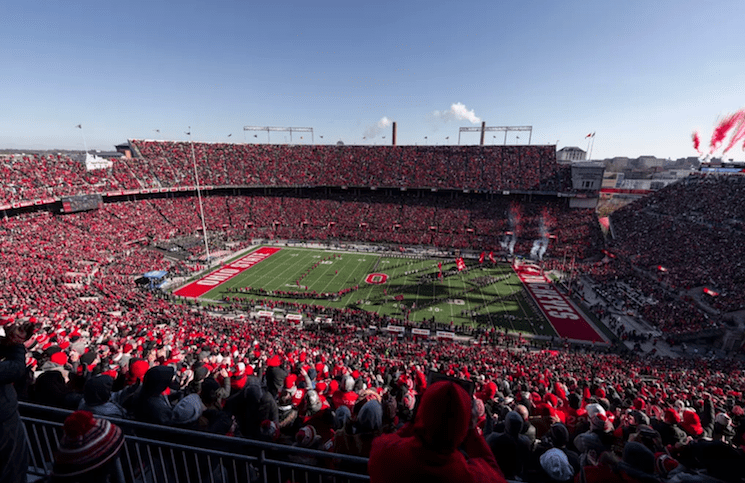
Our blueprint takes a deeper look at UT’s upcoming matchup, and focuses on what UT needs to do to win the game. It’s not necessarily indicative of how we expect the game to go.
Missouri on offense
The Tigers are 21st in the nation in total offense with 4,867 total yards. They are averaging 487 yards per game (295.7 yards passing, 191 yards rushing). Sophomore quarterback Drew Lock is the offensive leader with 2,957 yards passing. He leads the SEC with most passing yards and is tied with Josh Dobbs in touchdowns thrown (21).
On the ground, freshman running back Damarea Crockett leads the team with 837 rushing yards and nine touchdowns. Crockett is averaging 6.5 yards per carry. Crockett also splits carries with junior Ish Witter, who has logged 575 yards and four touchdowns (4.6 ypc).
When Barry Odom was hired as head coach last December, one of his first hires was former Oklahoma and Utah State offensive coordinator Josh Heupel. For years, Missouri has been a spread offense that likes to use 4-5 wide receiver sets. With Heupel, things haven’t really changed much. Lock is leading the SEC in passing yards and touchdowns. Heupel has implemented pretty much the same offensive style at Missouri that he had at his prior stops.
What does this offense look like? It’s an up-tempo spread offense that places an emphasis on the passing game. In terms of tempo, the Tigers can run a play, on average, with 16-25 seconds remaining on the play clock. With that tempo, the purpose is simply to wear down the defense. With Tennessee’s recent defensive struggles and lack of depth, this could pose a problem as the game goes on.
The average Heupel offense passes 49.4 percent of the time (about 40 times per game). For the majority of Heupel’s career as an offensive coordinator, the offensive lines have been solid by giving up an average of one sack per 35 pass plays. The reason Heupel’s offenses have historically put up good numbers is because he implements a quick-release system with an emphasis on making the correct pre-snap decision. The offense is similar to Baylor’s due to the fact Heupel wants to throw the ball vertically, but still utilizes the power game with inside zone runs. Using four receiver sets with a running back will definitely spread Bob Shoop’s defense out.
After struggling last season, Lock is now arguably the purest passer in the SEC. Butch Jones called him a future NFL quarterback earlier this week. He has great mechanics, a strong arm, and can even run under pressure. In terms of the passing game, Missouri will spread out the receivers. Many of the routes are short concepts that Tennessee likes to use including curls, bubbles, slants and screens. By doing this, they can get the ball out quickly and rely on the receivers to make plays out in space. With Cam Sutton back, the Vols will have a boost in the secondary to help cover these receivers. A majority of Tennessee’s secondary has been playing bending coverage, which allows room for receivers to make plays. Shoop will need to tighten up the coverage to limit big time plays from the passing game.
Among the numerous struggles on Tennessee’s defense, none stick out more than the run defense. Last week, the Vols gave up 443 rushing yards against an average Kentucky team. Missouri doesn’t have a world beater at running back, but Damarea Crockett has the potential to have a solid game if the run defense doesn’t tighten up. Good news is that Missouri’s running style is very similar to Tennessee’s, so the coaching staff should be somewhat used to seeing the same concepts they run. The defensive line will need to set the edge and run the gaps in order to contain the rushing attack.
Missouri on defense
The Tigers are 110th in the nation in total defense (Tennessee is 75th). They are giving up an average of 464 yards per game. In addition, Missouri is allowing 29 points per game. How does it compare to last year? Well, last season the Tigers finished sixth in the nation in total defense (301 ypg/16 ppg). That is a serious drop in performance and it doesn’t look to be improved against Tennessee.
Odom was the defensive coordinator last year for Missouri and is considered a strong defensive mind. However, he brought in DeMontie Cross from TCU to serve as the new defensive coordinator. Cross spent the 2015 as the linebackers coach and co-defensive coordinator at TCU. Cross implemented a new system, but it was scratched heading into November after a disastrous start. With injuries on the defensive side, Odom thought it’d be best to switch back to the system he used last year under Gary Pinkel.
Missouri plays a base 4-3, which simply means there are four linemen and three linebackers. The most common scheme is the 4-3 Over, which is managed through quarters coverage, which is a system that allows defenses to control the edges, and gets extra defenders flying to the ball against running plays. The 4-3 system allows Missouri to balance between aggressive play calls against the run and being in a sound alignment against verticals.
In this scheme, Missouri relies heavily on the defensive line. Unfortunately for the Tigers, they are banged up along the line just as the Vols have been. The bright spot for the Tigers has been defensive end Charles Harris. He leads the SEC among defensive linemen with 52 tackles. He also has eight sacks on the year and a forced fumble. Harris is a dangerous end who might cause some problems along Tennessee’s weakened offensive line. Don’t be surprised if you see him in the backfield several times throughout the game. However, the defensive unit has been plagued with injuries and has underperformed. If Tennessee’s offensive line comes out strong like it did against Kentucky last week, then there really shouldn’t be a problem. Play the gaps and block the edges. If things break down, then Dobbs can tuck it and run.
How can Tennessee combat this defense? It’s simple. Just do what you did last week against Kentucky. In the 4-3 and its quarters coverage, the numbers advantage goes to the defense. However, two-back spread systems that utilize play-action and RPOs make teams with quarters coverage lose that advantage. This is good news for Tennessee, because that is exactly what their offense is. Missouri will not be able to send safeties downhill against this offensive system because Dobbs will be able to shred them with quick perimeter passes or even the deep shots.
With the addition of Dobbs’ running ability and the two backs (Alvin Kamara and John Kelly), Missouri’s defense will likely struggle for most of the day. If Mike DeBord can balance out the passing and running attacks like he did last week, then the Vols should really have no problem against a historically bad Missouri defense. How bad can it be? The Tigers gave up over 1,700 combined yards in losses to Kentucky and MTSU. Add in a few wrinkle plays like the flea flicker we saw last week and it could be a very long day for Missouri.



